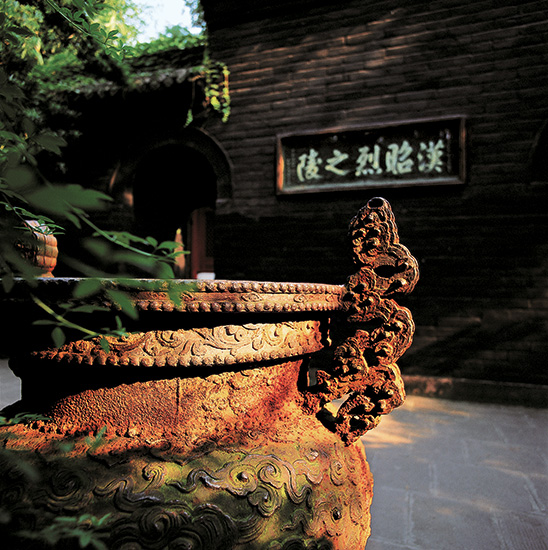 |
|
The mausoleum of Liu Bei as its major relics.[Photo by Ding Hao/China Daily] |
One such relic is the Temple of Marquis Wu, whose reputation as an important historical site dates back to the Tang Dynasty (618-907). It is a shrine dedicated to Zhuge Liang (181-234), prime minister of the Shu Kingdom and the personification of Chinese wisdom and loyalty.
During Zhuge's youth, the Eastern Han Dynasty's royalty was in a weak position and warlords were constantly embroiled in battles. Resolved to help restore the dynasty's power, Zhuge lived on a remote mountain, analyzing the situation while waiting for the opportunity to give full play to his talents.
Admiring his ability, Liu Bei, a distant but ambitious relative of the royal family, paid Zhuge three visits in 208, asking him to devise strategies to reunify the country and inviting him to be his top adviser.
Moved by his sincerity, Zhuge left the mountain and decided to use his wisdom to help Liu found the Shu Kingdom, where he served as prime minister for 13 years until his death.
Zhuge excelled in managing state affairs and commanding an army. During his tenure, people in the kingdom enjoyed political stability and economic prosperity. He died of overwork at the age of 53. His premature death caused widespread grief and people erected a temple in his memory.
The ancient Chinese respected loyalty to their country and the emperor. But many courtiers of the time tried to overthrow the emperor if he turned out to be weak, rather than offering help.